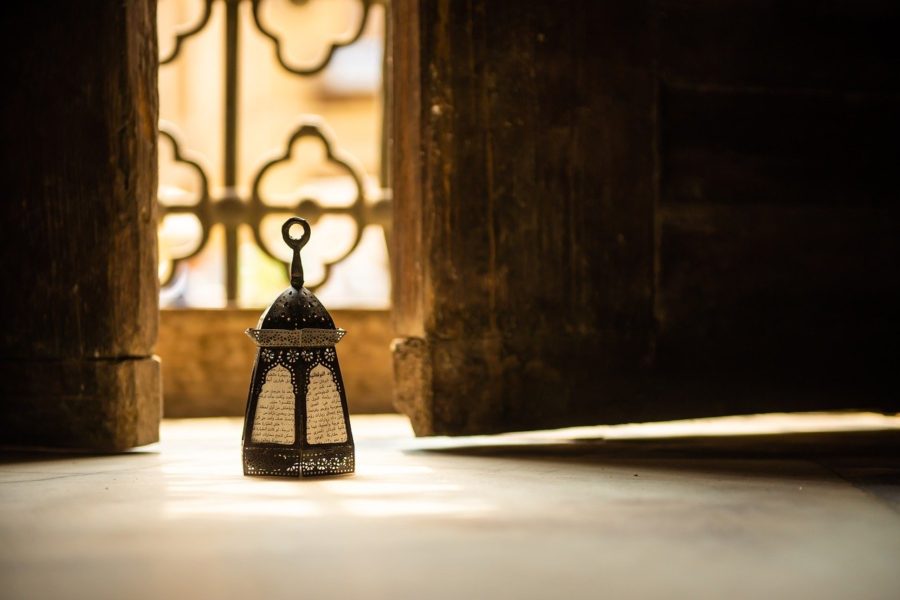There is genuine power in the practice of fasting that is recognized in almost every spiritual tradition in the world.
Fasting, we are told, can purify the mind and elevate our consciousness by refining our perceptions; giving us a more meaningful perspective on reality.
Self-restraint is an act of volition that can give us a sense of empowerment and raise our self-esteem.
When we exercise control over our physical motions, we end up harnessing the power of our spiritual emotions and channeling them in the direction of our greatest priorities. This is not just a spiritual principle but a law of nature. Fasting gives us strength.
The Power of Fasting
Of course, the power of fasting does not reside in the act itself but with its corresponding intention. Without the proper intention, fasting is a purely biological phenomenon. Without the right intention, hunger becomes a hunger for fuel, not faith.
With the proper intention, fasting induces a kind of passivity which reminds us that we need rest. We need to rest from the mundane, the superficial, the meaningless. With the proper intention, food becomes a sacrament, drink becomes an elixir of life. And fasting gives us a sense of exaltation. The ordinary becomes sacred.
Consider the following:
No matter how much emotional stress you might be under, luckily your nervous system cannot sustain a single emotion for any indefinite length of time. The adage that emotions are fleeting is literally true.
Prolonged emotional Pain can morph into euphoria, anxiety can morph into depression and vice versa. No emotion lasts for too long, even if the circumstances that produced it do.
We assume that emotional stress or pain is more difficult to bear than physical stress, but this is not the case. Emotional pain has the infinite space of our minds and imagination to hide and incubate. Emotional pain can be mythologized and glorified and propel us to craft narratives of triumphalism.
Great tribulations compel us to craft stories of transformation. Emotional pain ignites our spiritual energies that can give us hope, strength, self-determination, identity formation and of course – faith.
Spiritual Development
There is a reason that tribulation is often the impetus for spiritual development. It is God’s (Rahma) blessings upon us that we are equipped with tools of creativity and imagination, that not only allow us to triumph over pain but to catapult us into higher states of consciousness. Tribulations can become opportunities to demonstrate character and faith.
But physical pain, the kind that cripples us, like hunger, thirst, cold, and disease has no place to hide. It can only exist within the four corners of our finite bodies.
Physical pain cannot be romanticized. When it hurts it hurts! When you are shivering from cold, or cramping in hunger, or dying of thirst, you cannot demonstrate character, you cannot suffer in silence or with dignity. There is nothing sentimental about that kind of pain.
A little pain might force you to gain perspective, to see the bigger picture, and lift your spirit; Prolonged physical pain can break it. When you are cold and hungry, you are just that- cold and hungry.
Fasting is a hunger without the corresponding anxiety that comes from actual deprivation. There is no comparison between the volitional religious practice of abstinence and self-restraint and the kind that knows no options, no choice, no glory.
And yet when people are in deep emotional pain they subconsciously seek physical stress as a way of alleviating their anguish. Several studies support the claim that self-inflicted pain and stress can lead to feeling better.
Generating physical stress relieves the emotional. Is it any wonder why some people engage in self-destructive behavior?
We make the mistake of assuming that physical self-destructive behavior is preferable to the emotional pain of dealing with tragic loss or circumstances. It is only a lack of faith and imagination that leads us to believe this. Fasting during Ramadan, should help us to break these ingrained patterns of thinking.
How?
When we fast with a proper intention, we are engaging in a God-sanctioned form of voluntary physical stress designed to alleviate some of our worst heartaches. Fasting is a form of emotional healing. It’s a form of physical stress that can relieve emotional pain.
It directs your nervous system and your emotions toward the immediate. And it takes your mind off emotional trauma by giving you the gift of perspective, but without the corresponding anxiety that you would feel if you were genuinely in a state of poverty and deprivation.
Fasting is a reset button that reminds us that physical discomfort is not just an escape from the emotional, but a way of facing the petty little claims it has on your life.
You have food, shelter, water, warmth. Your voluntary abdication of any of that is a reorientation, a reset and relief button you can push to get away from the fleeting world of emotional drama. It’s a button that you have at your disposal.
Like any other God sanctioned means to dealing with Life’s realities, Ramadan provides a context for us to reclaim power over our lives in a way that is not pathological, because it is not anti -social but communal, and not self-destructive because it is self-exalting. Ironically, fasting is not a hardship, it is actually the hardship that relieves all hardship.
This article is from our archive, originally published on an earlier date and highlighted here for its importance.


